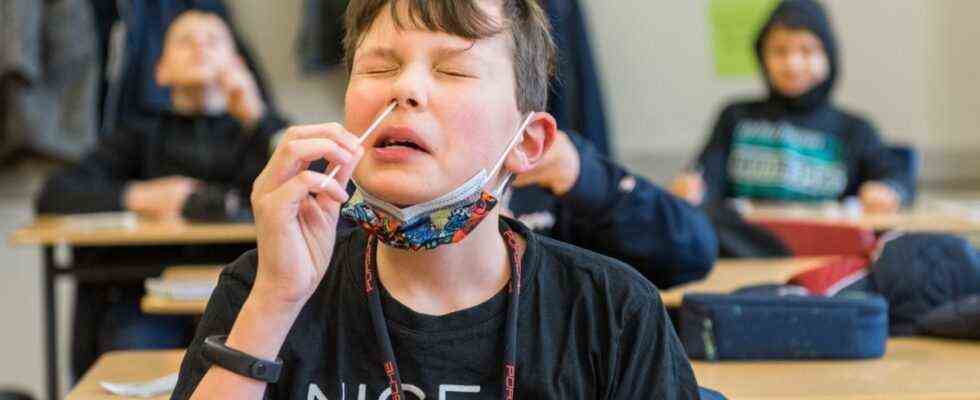More and more school principals in Bavaria are giving up: The Bavarian Teachers’ Association (BLLV) has counted more than 65 requests from rectors to give up their duties in the current calendar year. Before Corona, it was never more than a handful, says Gerd Nitschke, first chairman of the association’s executive board, at a press conference about the overloading of school administrations – especially in elementary and secondary schools. Every day he receives e-mails and calls from school principals who wanted to give up the post because of overload. Many school principals in Bavaria no longer know how to exercise their profession responsibly.
The reason is the corona pandemic. Six rectors reported on Friday from their everyday life, they alone made the situation clear, since the dramatic rhetorical questions from President Simone Fleischmann no longer needed. Sabine Bösl, for example, the principal school principal in Holzkirchen, said that she informs herself about legal regulations through the press and does not wait for the Ministry of Culture.
Because his letter would like to come on Friday afternoon, but would have to be implemented by Monday morning. Often that is not even possible – weekend work or not. The problem is well known, a year ago Prime Minister Markus Söder (CSU) publicly criticized the communication between the Ministry of Education and the schools. But nothing has changed, said President Fleischmann.
What it means for the educators to have to be permanently available, described the headmistress Andrea Zarn from Haar near Munich: Recently she forgot her cell phone while shopping and “felt happy not being online for ten minutes”. All six school principals reported that they were constantly busy with organizational matters in order to be able to keep only the minimum of school operations going in Corona times.
Just tracking the contacts which students would have to be in quarantine if a child tested positive is extremely time-consuming. What lessons did the person concerned have? Was it sport, do all children who have changed in the same cubicle have to be quarantined? Who are the neighbors? Was the seating arrangement the same as always? How is it with handicrafts?
“The teachers turn their heads”
“The reality in elementary school is that you don’t sit in your seat from 8 a.m. to 1 p.m.,” explains headmistress Zarn. That makes contact tracing more difficult. And the chaos continues: who comes to the distance lesson and who leads it? Because a teacher who teaches face-to-face with half the class in the mornings then has to supervise the other half in distance classes in the afternoons. When should the preparation and follow-up take place? “The teachers turn their heads and the headmasters have to organize everything.” But not only that. You would also have to continue teaching yourself.
Nitsche explained that as a rule six to seven hours per week are set aside for management tasks. Even in normal times, this is very tight, and cannot be achieved at all in pandemic times. For these tasks there are a good 100 euros more salary at elementary and middle schools. “For the children, for the colleagues”, that’s what all the rectors say, that’s what Simone Fleischmann and Gerd Nitzsche say, to the question that nobody seriously asks: Why are you doing this to yourself? It is therefore not surprising that management positions are repeatedly vacant for a long time. In Lower Franconia, for example, there are 16 of 348 positions. A request from the SPD parliamentary group in the state parliament shows that 57 headmaster positions at Bavarian elementary and secondary schools are vacant.
Rectors often have to run a second school and develop digitization concepts for this too or carry out so-called everyday skills weeks. All of this should happen between pool tests, separating groups and the core tasks of a teacher: “We should actually be there for the children,” says Zarn, and immediately afterwards: “When should I do that?”
The frustration runs deep, also in communication with the parents. Because for them, decisions are hardly comprehensible: Why does one child have to be in quarantine and the other not? Why is it like this at one school and like this at the other? Binding rules apply, but the individual case is always more complex. Communicating with all parents and explaining the decisions takes time. And there is a lack of time in every nook and cranny.
The demands that Simone Fleischmann derives are very simple: more time for management tasks, more staff, clearer communication on the part of the state government. They have to include “school realities” more in their decisions.

